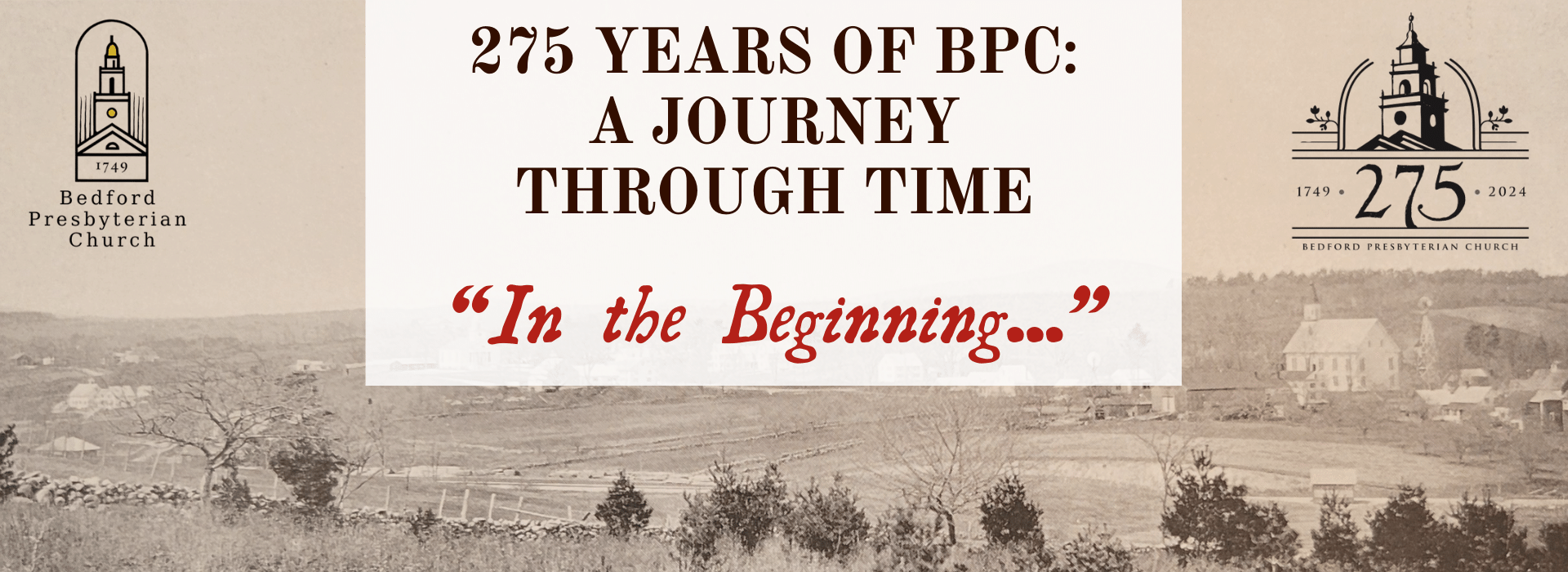The majority early settlers of the area known then as Souhegan-East were Scotch-Irish. They were descendants of immigrants who originally came from Scotland, first to Ireland, in hopes to escape religious constraints by the British. However, even though there was more tolerance in Ireland, they still became embroiled in the Irish Protestant conflicts during the late 1600s. This led to their emigration to America, first settling in the Londonderry area of New Hampshire in 1718. Next, they moved to the wilderness across the river and settled in what is now Bedford.
In Edward Everett’s, “Life of John Stark”, he wrote this about the colony of New Hampshire: “These emigrants were descended from the Scotch Presbyterians, who in the reign of James, were established in Ireland, but who professing with national tenacity a religious belief, neither in accordance with the popular faith in Ireland, nor with that of its English masters, and disliking the institutions of the tithe and rent, determined to seek settlement in America.” In 1840, The Rev. Thomas Savage wrote in his Historical Sketch of Bedford, “It was, we may believe,… for the enjoyment of the rights of conscience and religious privileges, that they came across the Atlantic and settled in these forests.”
We think that “Freedom to worship God” was probably the hope that the early settlers of America had. However, that wasn’t the case in the beginning. …They came here to establish their particular form of worship of God, and so strongly were they imbued with the idea that the observance of their peculiar form was essential to the future salvation that in Massachusetts, at least, citizenship in the colonies was made to depend upon membership in, and attendance upon, the form of religious worship established.[1]
The titles for the land in Bedford were granted by Massachusetts but organized under New Hampshire. The grantees were from Boston and the surrounding areas, many never having been to Bedford, sold the titles to their lots to the settlers. The grants of land made by the Massachusetts Bay Colony were uniformly upon condition that the proprietors should maintain “a learned and orthodox ministry” and a portion of the land granted was reserved for that purpose.[2] The settlers were almost without exception Scotch-Irish by birth or extraction, and strongly attached to the Presbyterian form of worship.[3]
In April of 1748, there was a notice from the inhabitants of the area known as Souhegan-East stating that they were without any township and didn’t have the privilege of choosing officers for regulating their affairs, such as raising funds for ministry.[4] In what seems like a mutual agreement, the inhabitants formed the church but needed the formation of the town in order to raise the funds to support the ministry. Permission was granted by his Excellency, Benning Wentworth, Esq. Governor and Commander in Chief of his Majesty’s Province of New Hampshire, to hold meetings to transact such matters that are done at a town or Parish meeting. The first meeting was called by Capt. John Goffe, Jr.
The Boston Presbytery, the first Presbytery in New England, was established on April 16, 1745, in Londonderry. Many of the inhabitants of Souhegan-East traveled across the Merrimack by canoe to worship in Londonderry. The church in Bedford was organized by the Boston Presbytery on August 15, 1749 shortly followed by the Incorporation of the town on May 21, 1750.
[1] History of Bedford New Hampshire From 1737, (The Rumford Printing Company, 1903) 263.
[2] History of Bedford New Hampshire From 1737, (The Rumford Printing Company, 1903) 263.
[3] History of Bedford New Hampshire From 1737, (The Rumford Printing Company, 1903) 263.
[4] History of Bedford New Hampshire being Statistics Compiled of the Occasion of the One Hundredth Anniversary of the Incorporation of the Town, May 19, 1850, 113.

